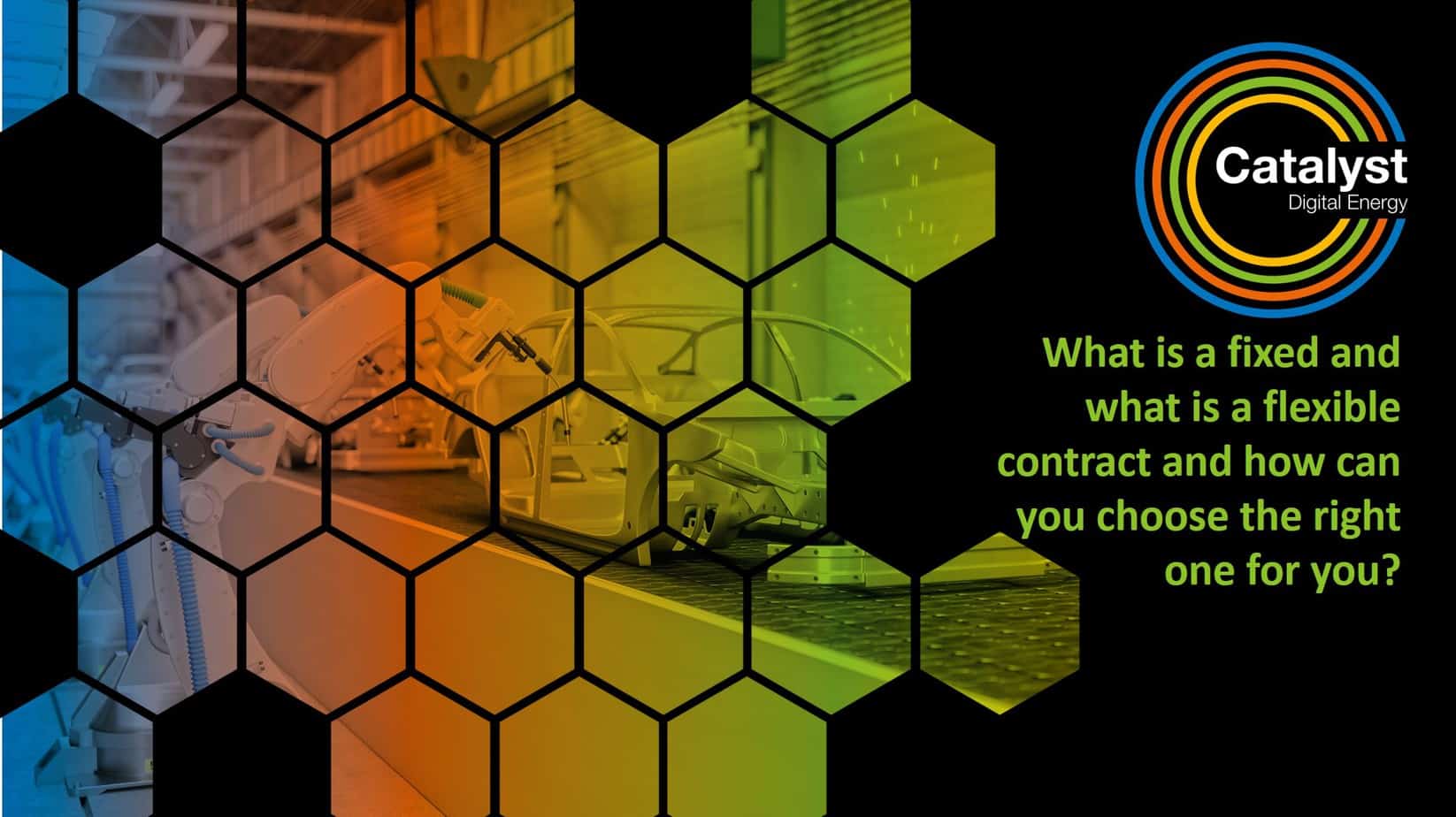What is a fixed and what is a flexible contract and how can you choose the right one for you?The premise behind a flexible energy contract stands in the ability to have complete transparency over the component parts that make up your final energy bill.

Fixed Energy Contracts vs Flexible Energy Contracts
There are two things you must know about the contract energy market…fixed and flex contracts. We know that we are on the edge of the contract landscape shift and we’ve talked a lot about the debate between fixed versus flexible contracts, but we need to always understand the difference between the two.
Fixed procurement
All energy and third-party costs are locked-in on the day the contract is signed.
-
Timing is everything, if you are lucky and the market is in a low point you can lock-in a great price for up to several years.
-
Most, but not all fixed price contracts also fix the third-party costs but check the T&C’s as many will reserve the right to pass on any additional charges. This price guarantee is risky for energy suppliers as third-party costs can be volatile. Suppliers will often include a risk premium on the price which is a buffer should prices rise.
-
Fixed is preferable if the energy market is at a low point and future prices are expected to rise. Then a fixed term contract can be very appealing as it would protect an organisation against these rising costs.• Fixed is suitable for businesses who are risk averse and require stability and budget certainty over a period of time and are sure of the amount of energy that they need.Flex procurement
-
The premise behind a flexible energy contract stands in the ability to have complete transparency over the component parts that make up your final energy bill.
-
They provide the framework for you to separate third party costs from the cost of purchasing the energy directly at wholesale prices. Either annually or for the whole contract but remember these will still include a premium if you fix them.
-
Flexible offers greater freedom and control than fixed procurement, as it allows an organisation to spread the risk of energy purchasing decisions over a period of time and take advantage of wholesale price movements.
-
This makes flexible energy procurement especially suitable for customers with larger energy volume requirements, as these types of contracts are limited and only available to businesses that consume a certain amount of energy during the year.
The Covid-19 pandemic is forcing many businesses of all sizes to consider how they procure energy, with many realising they need greater flexibility to adapt to market changes. Flex contracts help provide this level of flexibility because when setting up a flexible procurement framework, a three-year energy strategy will often be devised. This will take a long-term view of the energy market and allow your organisation to do the same, assisting with long term energy budgeting and forecasting.
About Catalyst
Catalyst Digital Energy is an award-winning energy consultancy with a focus on digital energy services, total energy contract lifecycle management and energy management services. It is revolutionising how businesses manage energy with its unique Energy Spend Management Platform, which is powered by Robotic Process Automation (RPA) EaaSi®.
Catalyst is digitising all aspects of energy, including billing, data, consumption, spend, payments, procurement and emissions reporting. When combined with its fully funded renewable energy solutions, Catalyst offers a unique and powerful approach to managing energy.
With a flex contract you can better manage your volume requirements and adapt quickly to market conditions. With this level of freedom, you can also unlock hidden costs through better energy management with a flexible product which can ‘pass through’ non-energy charges.
